LIAO, CHING-JUNG
Department of Information Management
Simple things done well can bring about positive outcomes. It is this belief that drives me to continue my service-learning courses and projects. Over the past two years, the global pandemic has been severe, affecting and changing many aspects of the economy and daily life. However, children in orphanages still require additional support in their learning. With the shift to remote teaching and learning, online companionship and academic guidance have become even more important. For 11 consecutive years, I have been involved in the Ministry of Education’s Digital Companions for Learning Program and online tutoring for children in orphanages. Leading fellow classmates through cloud platforms, I have provided one-on-one online teaching every step of the way, assisting children in rural areas and orphanages. Through life-to-life companionship, we have grown together with these children. During the pandemic, in addition to their regular school curriculum, the children had online companionship from adults. This companionship provided fulfillment in both academic and emotional aspects of their lives.
In recent years, I have developed service-learning courses such as Introduction to Cloud Computing and Cloud Services. These courses are integrated with general education courses like Creative Problem Solving and Advanced Creative Problem Solving. By incorporating Project-Based Learning (PBL) as a foundation for problem-solving, I have honed my skills in online teaching and guided students to create engaging presentations that enhance their learning effectiveness. When the pandemic situation improved, I had the opportunity to visit schools in rural areas and orphanages. Upon entering the room, the children would shout, “I recognize you! The teacher and the big brothers and sisters have come out of the computer screen!” During these visits, I often heard questions like, “Why didn’t that teacher come? Why didn’t that big brother come? Why didn’t that big sister come?” They eagerly wished to continue their classes with us. The feeling of fulfillment and the indescribable sense of gratitude touched me deeply. It made me realize the profound significance of the work we do in our daily lives.
In recent years, the Ministry of Education has placed great emphasis on computational thinking and programming education. In addition to learning these specialized knowledge and skills in their courses, students also have the opportunity to teach children through service-learning, enabling them to truly learn and apply these skills flexibly. The spirit of service-learning is that students can acquire professional skills through the process of serving others, which is a true embodiment of holistic education.
YEH, CHUN-LIN
Department of Architecture
I feel very lucky and delighted to have the opportunity to engage in service-learning courses, embarking on a fulfilling journey of architectural education. Historically, architects often describe “architecture” as “frozen music, the container of life, and a tangible reflection of culture.” Reflecting on my initial intention to lead students on actual visits to architectural sites and to experience space with their own bodies, it would be even more meaningful if I could contribute my professional expertise to the understanding of these spaces. Therefore, I chose “old houses and temples” as the focus of our service-learning project. Temples and churches themselves are like folk museums, housing rich traditional craftsmanship and cultural treasures. However, old houses are undoubtedly aging elders, with the traces of time etched on their faces. Though they cannot speak, the team tries to capture snippets or visuals through mapping surveys and other methods, documenting their own history.
Sincere thanks to the Chen Family Old House in Pingzhen Shanziding, Huang Ming-te Residence and Renhai Temple in Zhongli, and Gongbei Temple in Xizhi for providing venues for service-learning activities for students from Chung Yuan Christian University. Despite the inconvenience caused by our presence, you have been the nurturing ground contributing to student growth and development. I would also like to express gratitude to the Service Learning Center for providing the teaching platform. Throughout the journey, there were inevitable setbacks, but I am grateful for the assistance, support, and encouragement from partners such as Yu-ju and Yung-fu. I look forward to embarking on new journeys together and supporting each other along the way.
CHO, TSAI-LUN
Department of Information Management
Since the 2019 academic year, Professor Cho Tsai-lun has been consistently integrating service-learning activities into the “Management” course. This approach allows students to understand the operations of nonprofit organizations and practice management skills such as planning, organizing, leading, coordinating, and controlling. Under Professor Cho’s guidance, students participate in the Holistic Care Award Competition, and in the past three academic years (2019, 2020, and 2021), students have received awards. The service-learning course enables students to become active learners (learn by doing), and embodies the educational concept of “holistic education.” Students who go through this experience develop a sense of “love” and “care” for the world, thereby influencing others and making the world a better place.
In terms of public speaking, the experience of transitioning from being an audience member to becoming a speaker has been invaluable. Witnessing the enthusiasm of other teachers towards service-learning and sharing my own experiences has been highly beneficial. How to lead students in service learning! Even with the experience of teaching service-learning, we still need to make flexible adjustments in line with the situation of the pandemic. We hope that courses can be carried out smoothly and that students can have a positive impact on the world.

